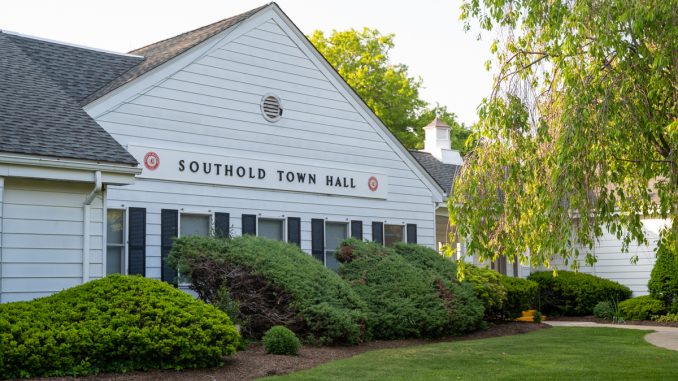
A recent review of Southold Town’s Affordable Housing Registry underscored the profound economic challenges of the area’s housing crisis.
In recent weeks, Gwynn Schroeder, Southold’s government liaison officer, who is in charge of the registry, reviewed the data from 618 applicants who have signed on to the registry in the past several years. She shared some of her findings during a Town Board work session early this month. The most discussed data point: More than half (57.4%) of the registrants earn $55,000 or less annually.
That economic reality is clearly out of step with the rental rates the Town Board dubbed “affordable” in 2023, as they would be out of reach for most of those applicants based on federal guidelines that define “affordable housing” as units for which “the occupant is paying no more than 30% of gross income … including utilities.”
For some on the board, the data Ms. Schroeder presented was jarring, and called into question how the town has approached affordable housing solutions, from the feasibility of ownership to the real-world affordability of rents.
“Honestly, the numbers are pretty shocking to me, personally,” Councilman Greg Doroski said during the discussion. “For me, as I look at this, I personally have expressed preference for [development proposals for] ownership [opportunities], and I think the board has expressed preference for ownership, but the people in this income bracket would have a hard time qualifying for a mortgage. I think we do need to look at rental options.”
For others, these figures rang a true, familiar tune, but did not raise any unexpected alarm.
“I wasn’t surprised because I’ve been one of those people also in that [income] category,” Councilwoman Jill Doherty said in a telephone interview. “I’m not now, fortunately. Everybody struggles here to get the higher salary you need to keep up with inflation … It’s a sad reality, that’s for sure.”
Ms. Schroeder shared her findings at a May 7 work session, which is the time of year when the Town Board ratifies its affordable housing and rental rates based on annual U.S. Housing and Urban Development department data, which measures both median income levels and fair rental rates for all of Long Island. Last year, HUD reported the median income for Nassau and Suffolk county residents was $107,800 for an individual and $153,900 for a family of four. To determine fair market rents for the region, the department calculates “an estimate of the amount of money that would cover gross rents (rent and utility expenses) on 40% of the rental housing units” throughout the area.
Last year, HUD’s fair rental rates ranged from $1,536 for a studio apartment to $3,245 for a four-bedroom unit. On May 23, 2023, the Town Board ratified these rental figures as the maximum rates a landlord could charge a moderate income tenant, which town code defines as a family listed on the Southold Town affordable housing registry whose total income does not exceed 120% of the median HUD calculates for Nassau and Suffolk counties.
The self-reported incomes of the majority of Southold registrants reveal a wide gap between HUD’s annual figures and the incomes of current and prospective town residents. In light of this, the Town Board, which works closely with the planning department on housing matters, may decide not to use HUD’s figures as part of their calculus this time around.
But even without Southold Town-specific data, wages and rental rates are clearly out of balance. From 2023 to 2024, HUD’s area median income for an individual in the Nassau-Suffolk area increased 1.48% for an individual and decreased approximately 0.06% — roughly $100 — for a family of four. Meanwhile, the agency’s fair market rental rates for the same period increased 11.2% for a studio, 12.02% for a one-bedroom apartment and 8.51% for a four-bedroom unit.
“These are the kinds of discrepancies we need to think about,” town planner Mara Cerezo said during the work session.
As Mr. Doroski pointed out, the board must also consider that based on HUD’s definition of affordable housing, someone earning $55,000 should not pay more than $1,375 per month for housing and utilities. The current Town Board-approved affordable rate for a studio is $1,536.
During the May 7 work session, Supervisor Al Krupski tasked Ms. Schroeder, Ms. Cerezo and assistant town planning director Mark Terry with exploring the rental rates set in nearby Riverhead, where far more affordable housing units have been created in recent years than in Southold.
Two weeks ago, Ms. Doherty met with the town’s Housing Advisory Commission. To try to shrink the chasm between local incomes and housing costs, she said, the commission discussed better collaboration between the town and potential developers who propose rental projects to ensure that a portion of newly created units be rented at rates affordable for those who earn 60% to 80% of the area median income.
“We didn’t come to any conclusions yet,” Ms. Doherty said, “because it’s so difficult.”

